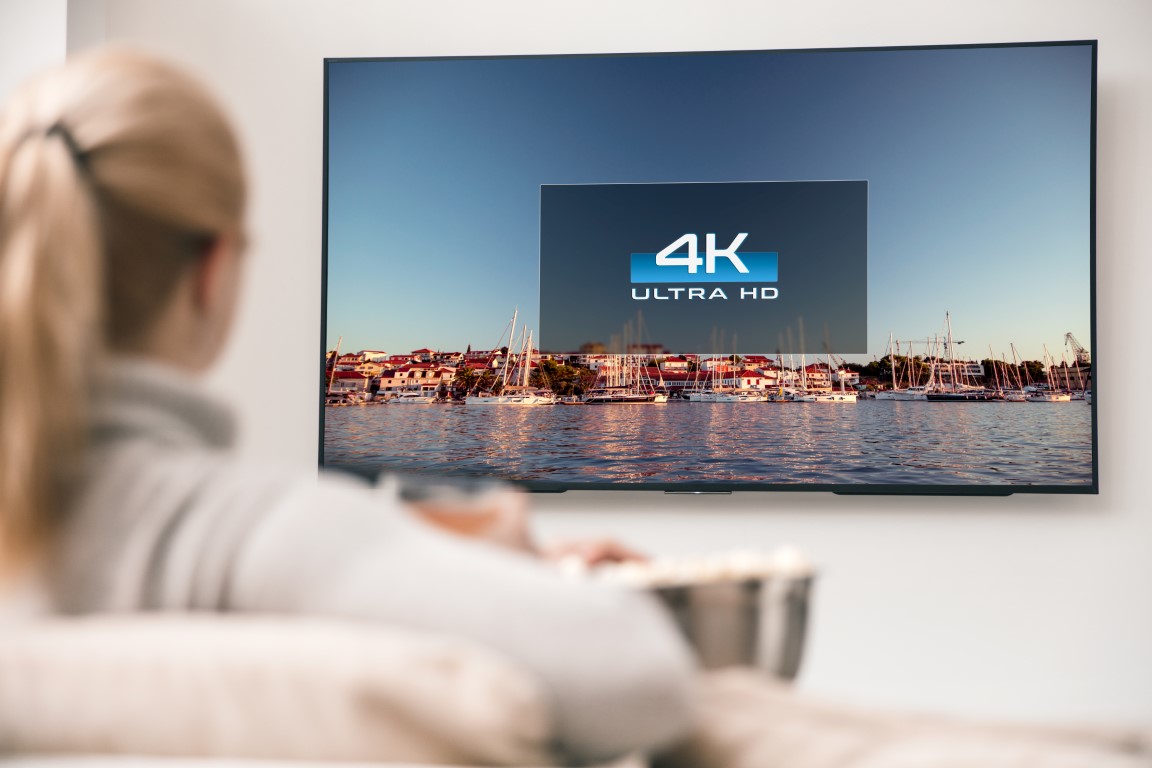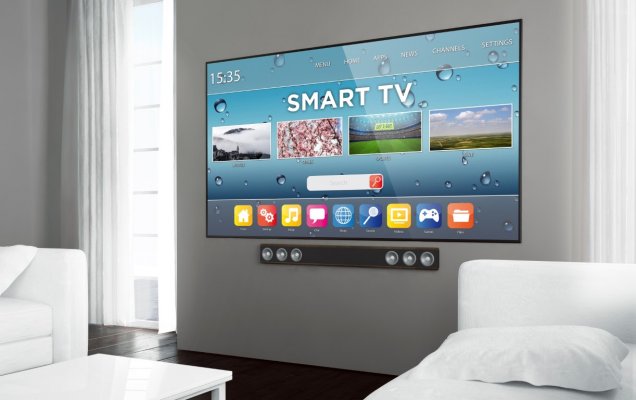OLED and 4k TVs are two of the latest technologies in television. OLED, or organic light-emitting diode, is a newer technology that offers better picture quality and color accuracy than traditional LCD screens. 4k TVs, on the other hand, have four times the resolution of standard HDTVs and can provide a more immersive viewing experience.
So, which one is better? It depends on your needs and preferences. If you want the best possible picture quality, then OLED is the way to go. However, if you're looking for a more affordable option with still excellent picture quality, then 4k TV is a great choice.
OLED is a type of display technology used in electronic devices. OLEDs are made up of thin layers of organic materials that emit light when an electric current is applied to them.
OLEDs are used in various electronic devices, including cell phones, TVs, and computer monitors. They offer several advantages over other types of displays, such as higher refresh rates, lower power consumption, and wider viewing angles.
OLED technology is still relatively new and expensive, but it is expected to become more common in the coming years as prices come down.
OLED technology is a step up from the traditional LCD screens in several ways. For one, OLED does not require a backlight, which means that the display can be thinner and more energy efficient. Additionally, because each pixel in an OLED display emits its own light, the contrast ratio is much higher than that of an LCD screen, resulting in a sharper image with more vibrant colors.
So how does OLED technology work? Each pixel in an OLED display is made up of a thin film of organic molecules that emit light when an electric current is applied. The current amount of each pixel determines how bright the pixel will be. When no current is applied, the pixel will turn off and appear black.
As the world becomes increasingly technologically advanced, people are constantly looking for ways to improve their viewing experience. One of the latest advancements in television technology is OLED or organic light-emitting diodes. OLED offers several benefits over traditional LCD screens, including better image quality, lower power consumption, and faster response time.
Image quality is one of the most critical factors for many television viewers. OLED screens provide better image quality than LCD screens because they produce more vivid colors and have a higher contrast ratio. The colors on an OLED screen appear more natural and accurate than on an LCD screen, and the higher contrast ratio means that black levels are truly black, not just dark gray.
Power consumption is another essential factor to consider when choosing a television. OLED televisions use less power than LCD televisions because they do not require backlighting.
4k televisions are a new type of television that offer four times the resolution of traditional HDTVs. 4k TVs have become increasingly popular in recent years, as they provide much more detail and clarity than HDTVs. While 4k TVs are more expensive than HDTVs, they are becoming more affordable as technology improves.
OLED televisions are a newer type of television that offers even higher resolution than 4k TVs. OLED TVs use organic light-emitting diodes to create images, which results in extremely high levels of contrast and color accuracy. OLED TVs are also more energy efficient than other types of TVs. So while OLED is a type of TV, 4k is just a TV with 3,840 horizontal pixels and 2,160 vertical pixels. This allows it to put out super clear and clean images. So you could have a 4K OLED TV, a 4K LCD TV, or even a Non 4K OLED tv.
4k TVs offer four times the resolution of traditional 1080p HDTVs. In addition, they provide a more immersive viewing experience with increased clarity and detail. 4k TVs also offer a more comprehensive range of colors, allowing for more realistic images.
OLED technology is another beneficial feature of 4k TVs. OLED panels are thinner and lighter than traditional LCD panels, providing better image quality with deeper blacks and brighter whites. OLED technology also consumes less power than LCD, making 4k TVs more energy efficient.
4k TVs provide a more realistic and immersive viewing experience than 1080p HDTVs. They offer an increased resolution, more comprehensive color ranges, and improved contrast ratios. OLED technology makes 4k TVs even more, energy efficient and provides better picture quality.
4K TVs are becoming increasingly popular, but is the extra resolution worth the additional cost? Here's a look at 4K TV technology and whether it's worth investing in.
4K TVs are the latest trend in television technology, offering four times the resolution of standard 1080p HDTVs. The extra resolution results in a sharper image with more detail and clarity. 4K TVs also offer a wider color gamut and higher frame rates than 1080p HDTVs, providing a more immersive viewing experience.
So, is it worth buying a 4K TV? If you're looking for the absolute best picture quality available, 4K is worth it. But if you're not concerned about having the absolute best picture quality, you may be better off sticking with 1080p.
LED and 4k TVs are the two latest television screens on the market. So, which one is best?
4k TVs offer a higher resolution than OLED TVs, so they are better for watching movies or playing video games. However, OLED TVs have better color accuracy and contrast ratios than 4k TVs.
So, which type of screen is best for you? If you want the best possible picture quality, go for a 4k TV. But if you want a screen with better colors and contrast, go for an OLED TV.
4K TVs are becoming increasingly popular, but what are the pros and cons of this technology?
On the plus side, 4K TVs offer four times the resolution of standard HDTVs to enjoy a much sharper and more detailed picture. They also tend to have better color reproduction than HDTVs, and some models even offer HDR (High Dynamic Range) for even more realistic images.

On the downside, 4K TVs can be quite expensive - often several thousand dollars. They also require a lot of data to stream or download, so you'll need a fast Internet connection to take full advantage of them. And not all content is available in 4K yet, so you may have to watch some things in lower quality.
OLED and 4k TVs are two of the latest television technologies on the market. OLED, or organic light-emitting diode, TVs use a thin film of organic material to create light. 4k TVs have a resolution of 4096x2160 pixels, four times that of 1080p HDTVs.
These new TV technologies offer many benefits over older models. OLED TVs are thinner and more energy-efficient than traditional LCD TVs. They also provide better picture quality, with deeper blacks and more vibrant colors. 4k TVs offer four times the resolution of 1080p HDTVs, making for a sharper and more detailed image.
OLED and 4k TVs are still relatively new technologies, and they come with a premium price tag.





